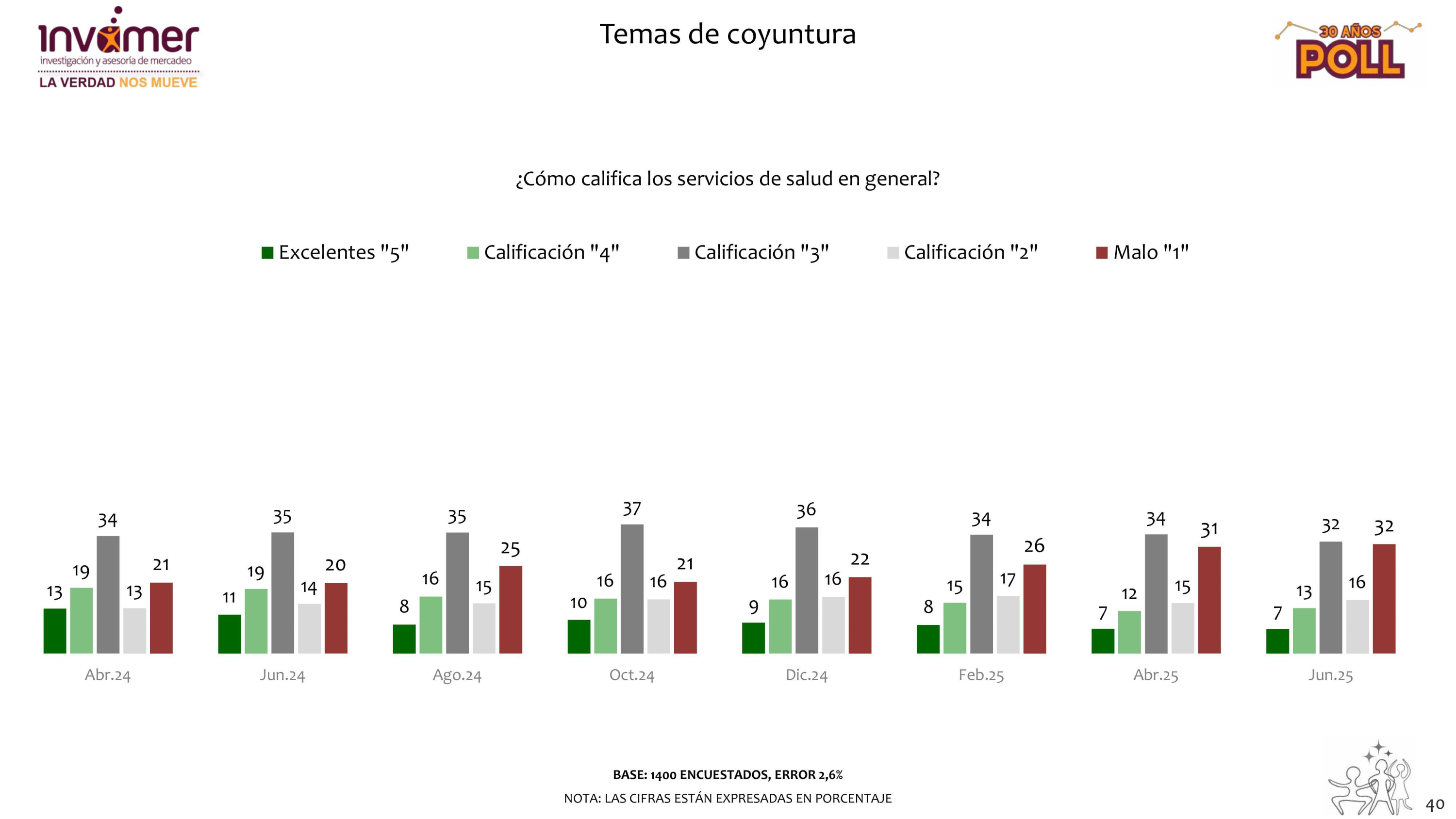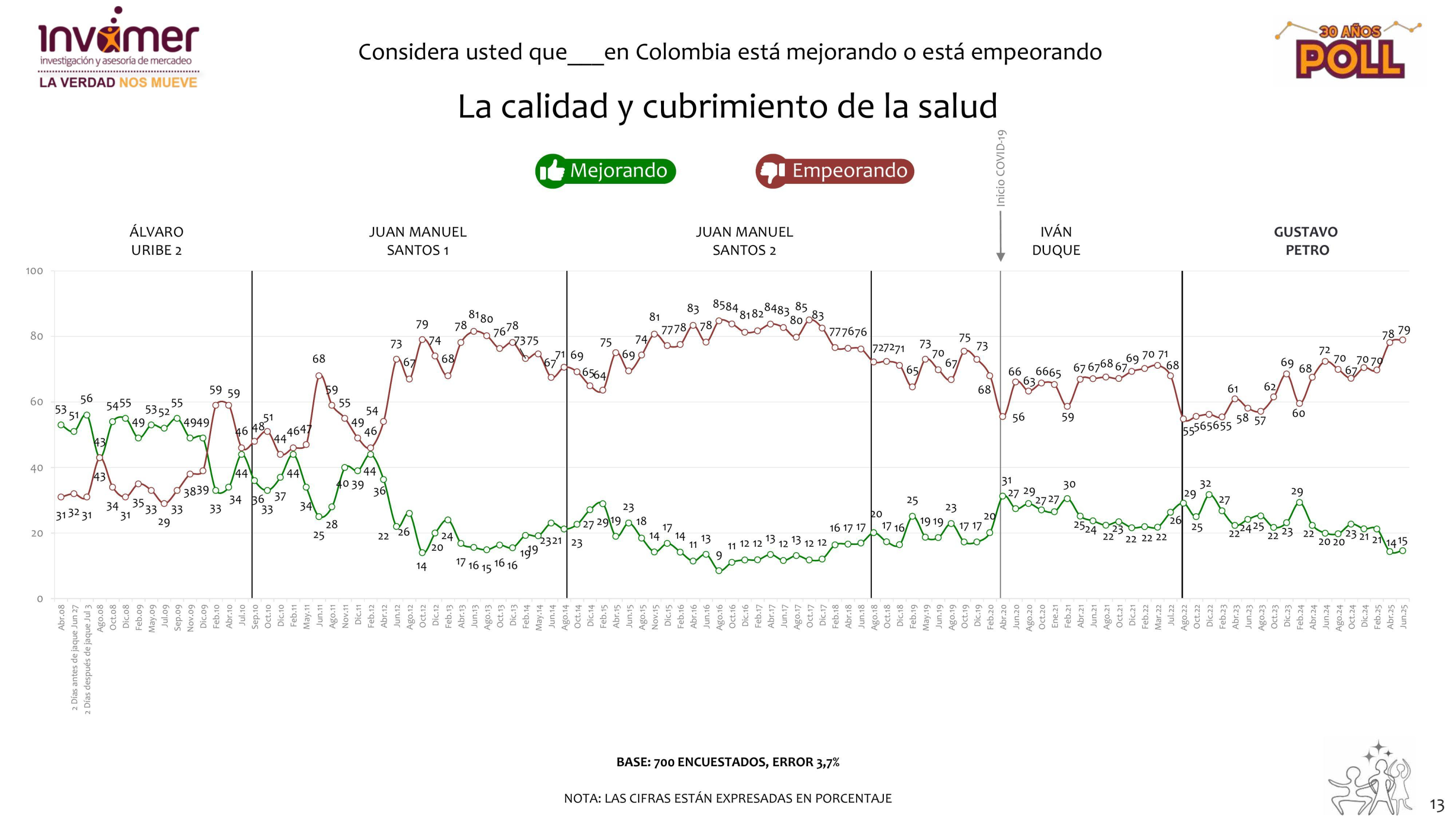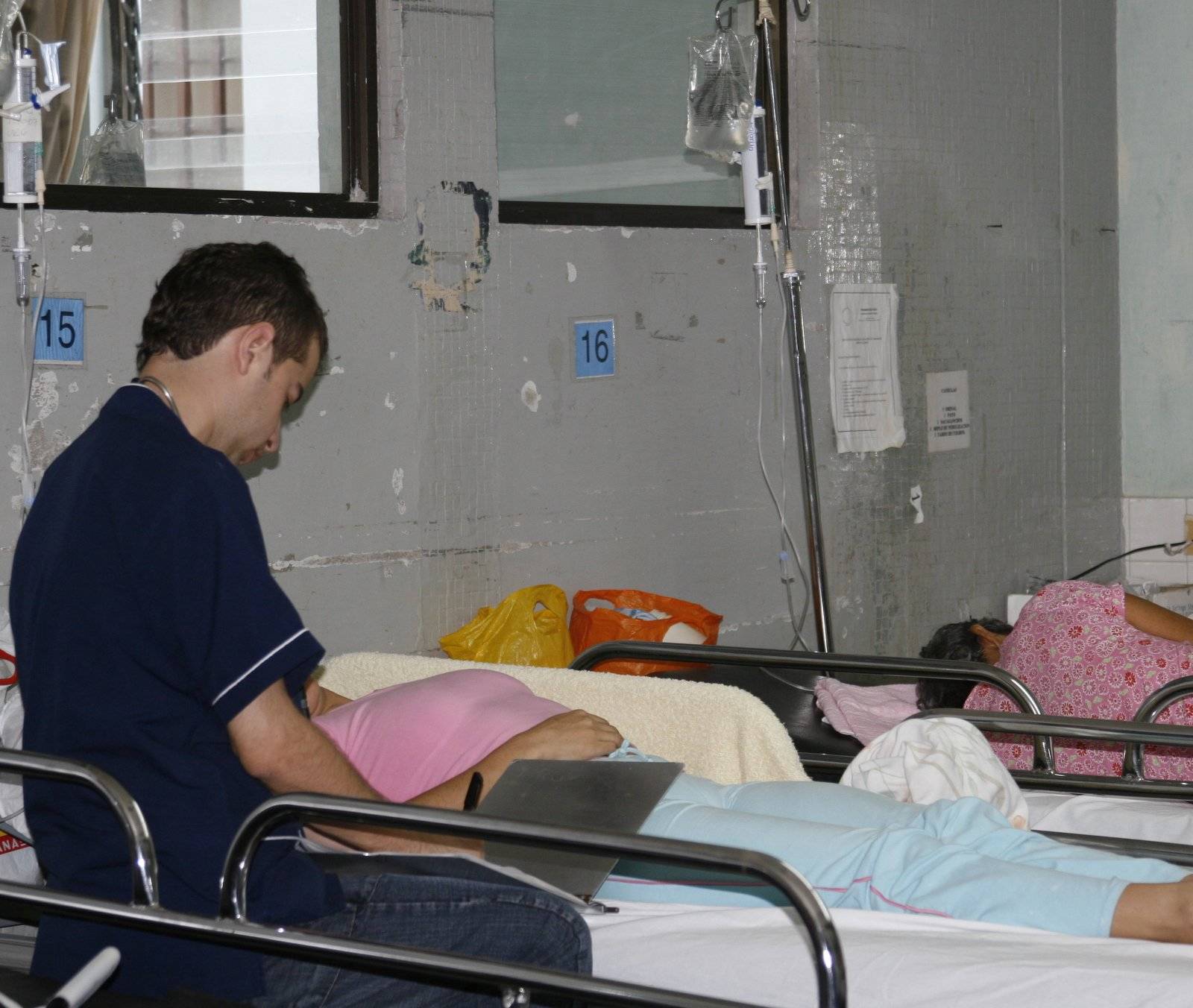79% of Colombians believe that healthcare quality and coverage is worsening, according to Invamer.

The most recent Invamer survey, conducted in June 2025, makes it clear that, for Colombians, access to healthcare in the country is worsening. According to the figures, more and more Colombians rate the provision of healthcare services in the country as "poor," rising from 20% of respondents in June 2024 to 32% in the same month this year.

Invamer Survey. Section on health in Colombia. Photo: Invamer
Furthermore, when respondents were asked whether they considered the quality and coverage of healthcare to be improving or worsening, 79% responded that it was worsening (compared to 55% who considered this to be the case at the start of the current administration). Only 15% of respondents said it was improving (compared to 29% who considered this to be the case at the start of the Petro administration).
In the country's two largest cities, Medellín and Bogotá, health is among the top three concerns for citizens, along with insecurity. While in the other major cities (Cartagena, Cali, Barranquilla, and Bucaramanga), this issue is among the top ten concerns, with Cartagena being the most important for the population, ranking third.

Invamer Survey. Section on health in Colombia. Photo: Invamer
Invamer's figures reflect the current crisis facing the system, which has been described by experts, such as the group "Todos por la Salud," as a "humanitarian crisis." The Colombian healthcare system is currently a terminally ill patient that, despite having a clear diagnosis and potentially receiving treatment, only worsens with each passing day. The symptoms are evident: hospital units closing due to high costs, hospitals denying services to members of certain healthcare providers due to multimillion-dollar debts, pharmaceutical managers without medication inventories due to nonpayment, and patients protesting because their right to healthcare is not being guaranteed.

The Colombian healthcare system has been affected by a lack of funding. Photo: Private archive
This isn't the first time the country's social security health system has gone through a crisis; it has happened several times in the past. However, according to experts, this time something is different: efforts to address it are minimal or nonexistent, which increasingly worsens its condition and is reflected in all actors within the system, such as clinics that stop providing services and hospitals that are forced to close.
The problem is that, like any disease, the Colombian healthcare system could continue to suffer for years without a clear future. Meanwhile, the discussion about its diagnosis continues to generate divergent opinions. On the one hand, for experts, unions, and system stakeholders, the cure for the current crisis is an injection of more financial resources, as has been done in previous crises. But for the government, the solution lies in reforming the system and better management of available resources.
Environment and Health Journalist
eltiempo





